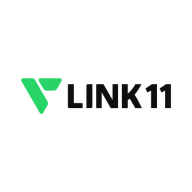

Reblaze and Azure Front Door both offer web application security tools with unique features. Azure Front Door seems to have the upper hand due to its comprehensive feature set and global presence, although Reblaze is recognized for its pricing and customer support.
Features: Reblaze offers a user-friendly dashboard, extensive real-time monitoring, and customizable security measures. Users value its ease of use and responsive support. Azure Front Door provides robust web application firewall, CDN, and load-balancing integration, excelling in global operations and scalable configurations for expansive protection.
Room for Improvement: Reblaze users seek better change management, more intuitive reporting, and enhanced automatic alerts, including improved session tracking and unified views of multiple instances. Azure Front Door could benefit from expanded global usage compatibility with other cloud vendors, clearer distinctions between similar Microsoft products, and adjustments for cost efficiency.
Ease of Deployment and Customer Service: Reblaze supports hybrid, private, and public cloud environments, with a hallmark of excellent technical support featuring rapid responses and intervention by expert staff. Azure Front Door primarily supports public cloud deployments, offering solid technical assistance with some limitations in support availability, though user satisfaction is reported for both platforms.
Pricing and ROI: Reblaze is praised for affordable and flexible pricing strategies that eliminate the need for extra personnel, providing significant ROI via sustained uptime. Azure Front Door's pay-as-you-go model is seen as reasonable, though sometimes expensive; the value of its services justifies costs, especially for small projects, with scalable and predictable pricing structures.
Azure Front Door offers a quick return on investment once it is set up.
I am able to set up a critical call with Microsoft, and they respond quickly to tickets with the highest severity.
I find that Front Door can become expensive for large-scale projects with more transactions and users.
Scaling can be done anytime as needed.
I rate Azure Front Door's stability a nine because it is easy to make updates through Azure Portal.
If I could use Azure Front Door with private IP addresses, it would be more beneficial.
The only significant adjustment required is with URL set parameters that need to be passed for an existing domain.
Azure Front Door is cheaper for small projects, companies, or applications compared to using separate tools.
Azure Front Door provides DDoS protection and features related to WAF.
Azure Front Door includes a built-in web application firewall, which performs signature-based checks of the request payload, offering protection against common attacks or malicious requests.

Azure Front Door is employed for securing external traffic, global load balancing, integrating web application firewalls, enabling disaster recovery, and enhancing application accessibility.
Organizations leverage Azure Front Door to support data publishing, act as a CDN, and ensure low latency for global users. Clients use it to protect numerous internet-accessible applications, integrate with DNS, and implement custom routes. Favored for caching web content and securely, efficiently distributing traffic to backend services, Azure Front Door offers SSL offloading, traffic inspection, and global scalability. Users value its affordability, ease of implementation, and web application firewall. Azure Front Door provides rich security features, traffic management, and URL rewriting. Load-balancing capabilities enhance performance with additional content security policies and bot protection. Integrations, including with GitOps, along with combined CDN and load-balancing, are also highlighted.
What are the most important features?Azure Front Door finds usage across multiple industries due to its versatile applications. E-commerce companies benefit from improved global accessibility and speed, while financial institutions leverage its security features for protecting sensitive data. Media and entertainment sectors use its CDN capabilities for seamless content delivery, and healthcare providers rely on its compliance and protection standards for patient data security.
Reblaze provides real-time monitoring, reporting, and botnet protections, enhancing security management with agile customization. Its intuitive dashboard supports efficient decision-making, while flexible rules and geo-blocking ensure security across geographies.
Reblaze is primarily deployed for web application firewall (WAF), DDoS prevention, and bot management, effectively defending against Layer 7 DDoS, phishing, SQL injections, cross-site scripting, and unwanted IP traffic. Supporting both public and private cloud deployments, including Amazon-hosted applications, Reblaze filters malicious activities to safeguard internet businesses. Users appreciate its comprehensive security approach, particularly for mobile app protection through its API and advanced filtering against script injections. Room for improvement includes change management, automation, reporting alerts, session management, and more granular WAF features. Adjustments in pricing and enhancements for bot management and bad IP address databases are sought after.
What are Reblaze's Most Important Features?In finance, Reblaze addresses the stringent demands of data protection. E-commerce platforms benefit from its robust perimeter defenses against typical threats. Healthcare industries utilize its capabilities to secure sensitive patient data, leveraging both real-time monitoring and responsive alert systems to maintain compliance and integrity.
We monitor all Web Application Firewall (WAF) reviews to prevent fraudulent reviews and keep review quality high. We do not post reviews by company employees or direct competitors. We validate each review for authenticity via cross-reference with LinkedIn, and personal follow-up with the reviewer when necessary.